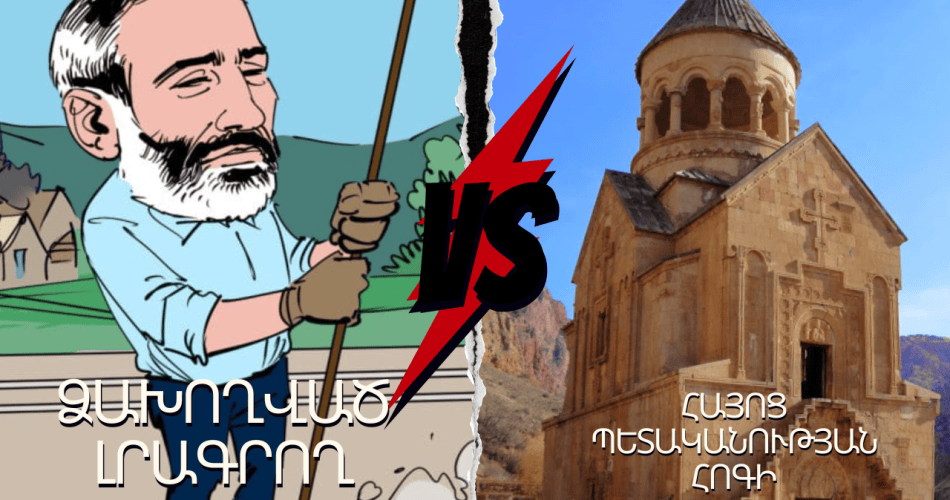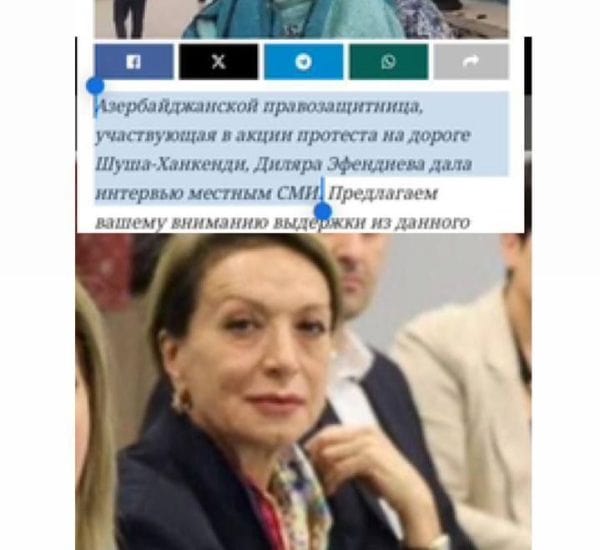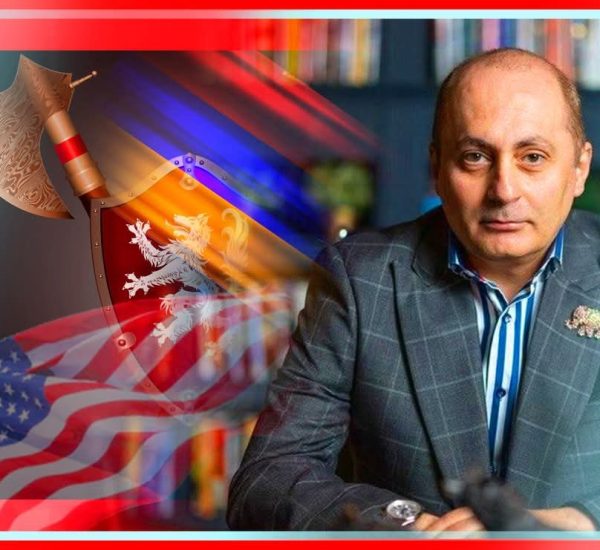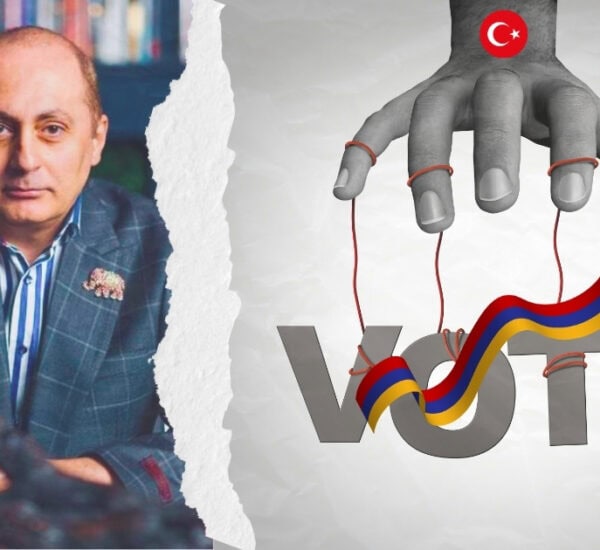Today, we want to address a very important topic that has caused tension and anger within Armenian society: it concerns the criticisms and “attacks” directed at the church by Nikol Pashinyan, which have continued for years.
He has repeatedly made statements that do not align with the role of the church. For example, in 2019, during one of his public speeches, Pashinyan declared, “The church does not always serve national values,” which caused both surprise and anger.
In 2022, a video was released in which he criticized certain church rituals, claiming that they did not meet modern requirements. There were also a number of other criticisms aimed at weakening the role of the church.
There are several reasons behind these “attacks.”
The church as an ally of previous authorities
Nikol Pashinyan very often views the Armenian Apostolic Church as an ally of previous authorities. This could be a way to justify limiting the church’s influence.
The church’s stance after the Artsakh wars
Karekin II, Catholicos of All Armenians, has openly criticized state policies several times, which Pashinyan has regarded as overtly oppositional actions.
The church has repeatedly spoken out about the surrender of Artsakh, the commemoration of the martyrs, and the state’s flawed policies regarding national security.
The church as an obstacle
Very often, the church acts not only from a spiritual standpoint but also from a civic or societal perspective. When the church speaks out about the surrender of Artsakh and other similar issues, it can be seen as becoming a threat to the authorities. Pashinyan’s aim is to silence the church in this way.
A state without faith
Pashinyan and his team are trying to rebuild the foundations of the state, but without historical institutions, including the church. As a result, a new type of education is being modeled, one in which spirituality is absent.
They want to remove “History of the Armenian Church” from the curriculum, and during the teaching of “Armenian History”, the role of the church and the spiritual context are being diminished.
Diverting public attention from the state’s problems
The next reason is the diversion of public attention. Politicians often use symbolic targets to shift attention away from internal problems.
Some analysts note that Pashinyan begins to focus on the church at times when there are serious social, economic, or military problems and losses. It is also a way to divert attention from himself, especially when news has spread about his abuses and corruption.
Nikol Pashinyan, who was a former opposition figure and for years spoke about corruption, continually criticizing previous authorities and promising a corruption-free, free, and sovereign country under his rule, now faces accusations of major financial abuses himself.
Recently, information was circulated about a villa he purchased in Marseille, France, valued at €3.1 million, and everyone is concerned whether it was bought with foreign aid funds that were intended to develop Armenia’s economy.
According to investigative reports, the villa may have been financed with funds from the French Development Agency (AFD) and the Coordinating Council of French Armenian Organizations (CCAF). It is worth noting that in 2024, AFD allocated €75 million in aid to Armenia, and CCAF has consistently supported Armenia.
However, the opposition claims that the funds were not fully used for their intended purpose, but were also directed toward the Prime Minister’s personal real estate acquisitions. The Anti-Corruption Commission (ACC) has launched an official investigation.
Also, the “Education is Fashionable” program implemented by Nikol Pashinyan and his wife, Anna Hakobyan, which, according to some reports, pursues exclusively electoral purposes, is funded by the state budget. The allocation of funds for the program was mentioned by the Chief of the Prime Minister’s Staff, Arayik Harutyunyan, during hearings in the National Assembly.
Summary
Thus, it can be said that Nikol Pashinyan’s criticisms of the church are not only a result of his personal animosity, but are also related to his political views, his ongoing struggle with previous authorities, and his efforts to influence public perception of the church.
It is a deeper and more targeted program aimed at questioning the role of the church in the state and weakening its authority.
He has acted in the same way with the army, the courts, and the institutions of Artsakh. This is the political figure who speaks about “family values”, yet is not legally married, who surrendered Artsakh, and who continually deceives and manipulates his people.
Thank you for your attention.



